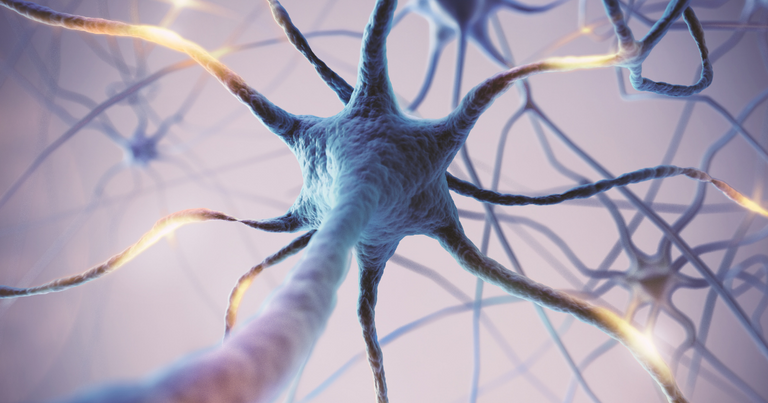
...before you invest your time reading this. I want you to know EXACTLY what you're getting from this post.
👉 What You Get From This Post...
*Que the "The Twilight Zone" narrator... 😉
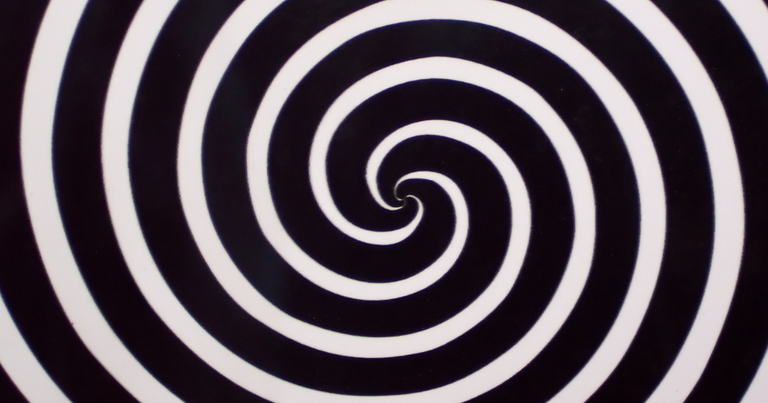
"Prepare yourself for a daring voyage... deep... into the human psyche... and your own brain."
In this post, you'll discover:
Some interesting facts and ideas around the "recipe" that creates your thoughts, feelings, and actions...
An overlooked concept that rules (and overrules) your behavior and the decisions you make...
The one BIG thing that's preventing you from making better decisions and reaching your goals faster in life...
And a method for engineering and changing your own behavior and habits...
So... here we go:
Diving in...

I'm fascinated by human behavior.
I mean... what really makes us tick?
What strange fusion of components and flashing electrical charges make up the recipe that forms our thoughts, decisions, and ultimately our actions?
And it's not just curiosity that fuels my fascination...
There are two major reasons the topic intrigues me:
Reason #1 is the potential impact that understanding the inner workings of my own "gray matter" could have on my own life and future:
- (...what ingredients go into my good decisions? What ingredients go into the decisions I'll later regret? And how can I change them to get better outcomes?)
Reason #2 is the positive impact I may have on the lives of others and those I care about through understanding how our brains operate:
(...how can I help others and those I care about overcome past trauma without first understanding the basic components and working mechanisms behind self-defeating thoughts?)
(...how can I be a conduit of positive energy that helps those people transform into the fullest version of themselves if I can't see which terminal is positive and which is negative?)
And we humans are by NO MEANS as binary as a simple 12V battery.
There are about 100 Billion neurons in your brain firing 5–50 (potential) messages off EVERY second.
That means your brain is sending between 5 and 50 BILLION messages each time the clock says "tick"...
That's 4,320,000,000,000,000 messages per day!
(...according to Google... there's not even a name for a number that big...) 😂
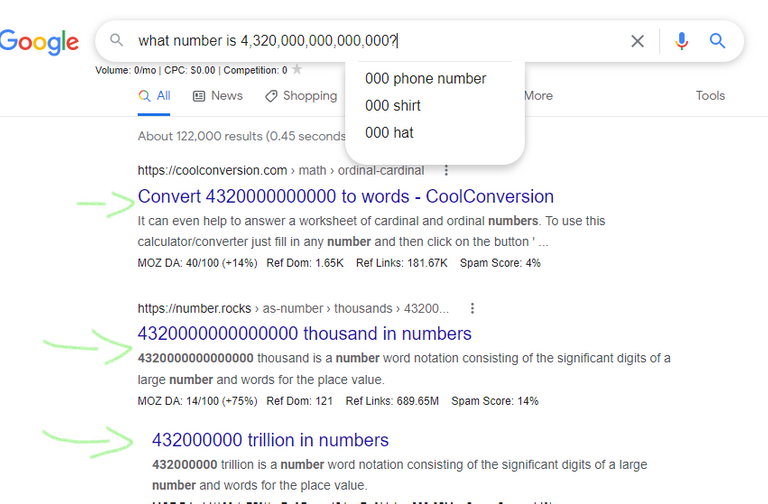
Also, did you know your brain uses up 20% of the calories you burn during the day... even though it's only accountable for 2% of your body mass?
Extra note: the common statement that "you only use 10% of your brain" actually isn't true! We use the whole thing... and this commonly believed mistruth is a case of a sociological anomaly called the "illusory truth effect" which you can look at if you're interested.)
So today, I wanted to explore a little about "relativity" and how it affects our perception of everything and the decisions we make.
The "Theories" Of Relativity (no... not Einstein's...)
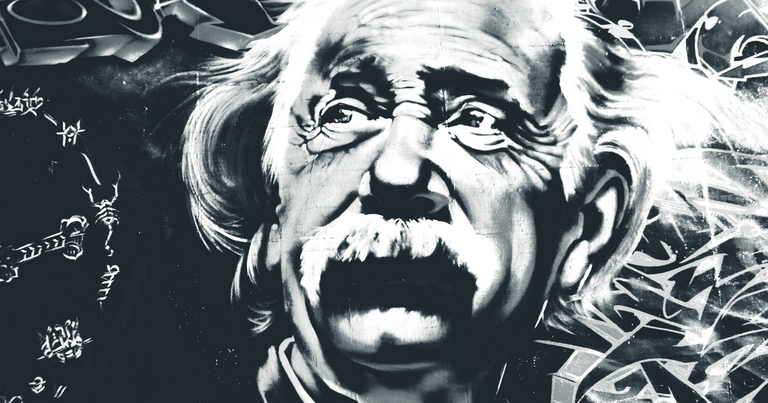
This isn't about Einstein's theory of relativity...
And it's not about Newton and an apple falling from a tree...
(Although... the concept we're exploring IS the foundational psychological function in Newton's brain that enabled him to discover gravity in the first place.)
Rather, this is about our seemingly inescapable need to compare everything with something else.
Have you ever been in a parking lot, looked out the window of the parked car you're sitting in, and suddenly realized your car is moving?

Someone must have forgotten to put it in park!
Your heart jumps as you either jam on the brakes or frantically warn the driver... only to find out that the car beside you is pulling out of their spot and leaving you feeling stupid, "duped" by your own brain.
YOU were never moving.
The other car was. But because your brain had assumed the car beside you was static, your entire world was upended!
Your own brain nearly tricked you into giving yourself a heart attack. And for no reason at all.
Now... here's the thing...
In many cases, our natural tendency to compare one object to another is good. When we're driving down the road (and our eyes are anchored to objects that serve us), this "perceptual relativism" can help us avoid crashing into other cars or hitting people crossing the crosswalk.
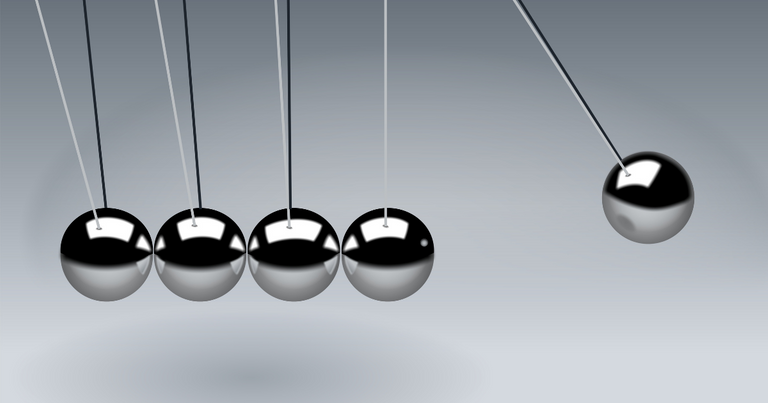
In Newton's case, without the ability to judge one object's location against another, he would have been completely unaware the apple even fell from the tree in the first place.
Our very basis for understanding motion and change (which are foundational to experiencing life) is built on the ability to do this one thing:
- Compare one similar thing to another similar thing. And those things to other similar things.
But what about when we're sitting in a parking lot and we anchor to the wrong thing?
Well... in that moment it's not useful at all. In fact, it can even be harmful (even if it only hurts your pride 😉).
But is our reaction to an object moving through space the only place where this "perceptual relativism" affects our thoughts, behavior, and the decisions we make?
No. Not even close.
Care for some proof?
The Relativity Trap
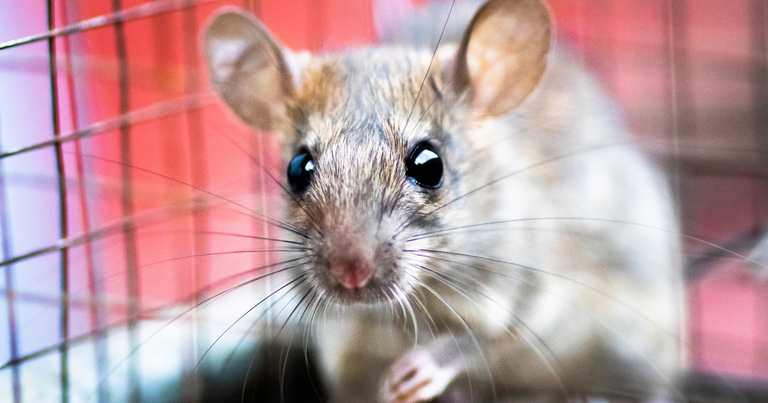
A great example of the far-reaching effects of relativism comes from Dr. Dan Ariely's book, "Predictably Irrational: The Hidden Forces That Shape Our Decisions".
In his book, Dr. Ariely reveals the results of a test he performed with 100 students at MIT's Sloan School of Management.
He gave the students the following advertisement (which he had found in an ad) and told them to choose one:
(inspect the add carefully... what do you notice?)
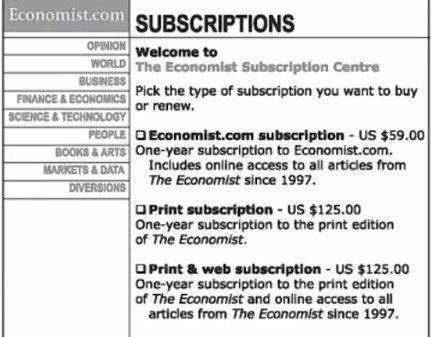
This was a real advertisement. And as you can see, it almost looks like these prices are an accident. How?
- Option #2 is a Print Subscription for $125
- Option #3 is a Print AND Web Subscription for $125
Option #3 clearly gives you more - but they're exactly the same price!
But as Dr. Ariely proves through the test, this was no mistake.
When given these three options, here's what happened:
84% of the students chose Option #3 (the more expensive option) while only 16% chose Option #2 (the cheaper choice).
Obviously, that's a win for The Economist. Right?
However...
When Option #2 was removed entirely and the only choices were the Economist.com Web subscription for $59 and the Print & Web subscription for $125... the results were much different...
When given ONLY Option #1 and Option #3, here's what happened:
68% of the next sample of students chose Option #1 (web-based subscription only for $59) and only 32% chose Option #2 (Web + Print option for $125).
So... why is this important?
Clearly... our tendency to make decisions based on comparison stretch far beyond the realm of the "space" and "mass" of physical objects in our world...
And we certainly use relativity and comparison to make decisions about what we do and do not value...
But does this concept go even further than that?
Do we use relativity to make decisions based on intangible things... like a predicted emotional experience?
Crippled Beneath The Weight Of Inaction...

Let's start with a familiar story:
Imagine you're doing something you enjoy.
Maybe you're reading a Hive post (or writing one), sipping on a hot cup of coffee as the aromatic steam gently brushes the tip of your nose...
Or maybe you're watching Netflix with your favorite snack in hand, cozied up to your lover - and your pet jumps up to give you some love...
Or maybe you're researching your favorite runner-up Alt Coins. On the trail to your next 30X. Feeling like royalty during the greatest wealth transfer in history...
Whatever your ideal place... Go there...
Now...
What happens when you realize you need to do laundry, the dishes, pay the bills, or some other menial task you'd rather avoid?
The first thing you'll probably do, whether consciously or unconsciously, is to compare that new reality against the ignorant BLISS you're currently living in.
And when compared to your paradise-like circumstances, the cold reality of needing to clean your house doesn't look too appealing, does it?

Nevertheless, it needs to be done. But if you always compare it to this situation, you'll probably never do it.
You'll procrastinate. And procrastinate. And procrastinate.
Until the doorbell rings unexpectedly and you go into a frenzied panic...
"Who is it? The house is TRASHED! Was that dinner with my boss supposed to be tonight? I haven't even SHOWERED..." 😨
But when you compare cleaning your house with THAT panicked, frenzied feeling? The one you get when you think about hearing the doorbell ring?
Suddenly... doing a little cleanup doesn't seem so bad anymore...
The task is exactly the same, but it looks completely different in the context of how you frame it.
Kinda like this circle:

Which blue circle is bigger?
Neither.
They're exactly the same size. But because your brain uses the surrounding darker circles as the context to judge size - one appears larger than the other.
That's exactly what happens when we weigh our options before making a decision. We use the context available to us to form emotions around a decision we'll make.
And 100% of the decisions you make are a result of emotions. Even if you think you're a logical person.
Don't believe it? Check this out...
All Decisions Are Emotional
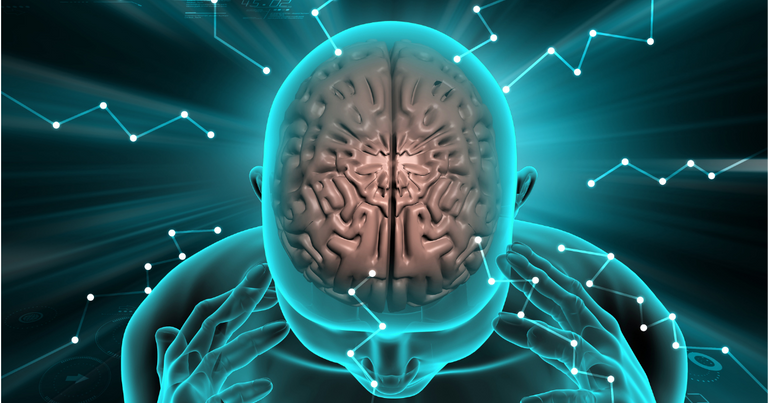
In the early 2000s, a scientist named Antonio Demasio studied patients with damage to the amygdalae (the part of the brain responsible for emotion).
The patients were fully functional and you'd probably consider them normal if you were to strike up a conversation with them. They just didn't have (or had extremely limited access to) the ability to experience emotions.
But Demasio did discover one thing that made them strikingly different:
- He found that people who can't experience emotion find it almost impossible to make even the most basic decisions, like what to eat or drink.
His discovery revealed that even people who consider themselves to be 100% logical still rely on their emotions to make decisions.
In a nutshell...
We make decisions based on emotion, and then we convince ourselves that we had a logical reason for making the choice.
And all of those emotions you experience are controlled by an ever-moving, ever-changing, chaotic hurricane of relative contexts.
We compare ourselves to others. We compare our cars to other people's cars. We compare our house to other people's houses.
We compare other people to other people. Old relationships to new relationships. Old jobs to new jobs. Old salary to new salary. Old habit to new habit.
The list goes on infinitely.
Imagine the interior of your skull as a raging thunderstorm, and like Dorothy in the Wizard of Oz, you are blindly tossed about as you try grasping something, anything, that isn't moving. But EVERYTHING is moving... and it never stops...
Doesn't sound like we have a lot of control over our lives, does it?
But THIS is where we venture a bit further...
THIS is where you start gaining back control...
Because there IS a way for you to influence and affect the decisions you make and the emotions you have...
There IS one thing you do have control over...
Here it is:
You Control The Context

Just like the previous example of:
A) Comparing "paradise-like" circumstances to "doing-the-laundry-esque" circumstances...
VS.
B) Comparing "doing-the-laundry-esque" circumstances to "boss showing up to your trashed house" circumstances...
The way you feel about making one decision or another is based on the context provided. And you get to provide the context...
Watering The Garden

Imagine you have a dual-split water hose that goes to two different sections of a garden. The water is coming out of the wrong hose. What do you do?
You probably don't go to the end of the hose where the water is coming out and try to plug it with your palm in the hopes it will come out the other hole.
(...the only thing that will accomplish is you getting yourself sprayed in the face...)
If you're smart, you'll go to the source (the valve)... and with a couple of easy twists, you can reroute the flow to the section of the garden that needs to be watered.
The same is true when controlling your emotions (and consequently... your decisions)...
The context you provide yourself is your valve...
And the way you frame your circumstances and the things you allow into your context is the arm you can use to twist that valve.
Relativity Soup... (from scratch)

You can also compare the "context" you provide yourself with to the ingredients you use when making soup from scratch...
If you only thought about what to put into the soup after it was done, you'd have no idea what kind of reaction you'd elicit in yourself when you ate it.
(i.e., if you lumped in an old shoe, your soup would probably elicit an undesirable reaction...)
But just because you don't taste your soup 'til after it's almost done DOESN'T mean you don't plan to have it taste a certain way.
In fact, you carefully select your ingredients so you can create a certain reaction (pleasure) in yourself and whoever else eats it...
And you can do the same thing with your "context" to create and elicit the right emotions that lead to better actions and the attainment of your goals.
Use vivid memories and imagined possibilities to "shift the flavor" and elicit the correct response.
Add a dash of friction where you need friction.
Add a sprig of positivity where you need positivity.
Add a cup of gratefulness where you need gratitude.
Sculpt your reality with the knowledge that everything you experience is relative.
It seems simple, but it's powerful!
Here's an example of how this worked for me:
How I Used This To Quit Smoking

Super simple logic...
Option A:
- Think about how the next cigarette will feel.
- Compare that to NOT having one right now...
Result: Smoke a cigarette. Every time.
VS
Option B:
- Compare smoking that cigarette with...
- Dying a slow and suffocating death... not being able to run... having ED... and lighting $600+ a month on FIRE...
Result: Suffer through quitting now. Reap tons of health and financial benefits later.
Don't get me wrong. When I was first quitting, it was hard to force myself to see that context as my reality.
I had to STEEP myself in the "future misery" of remaining a smoker... to drown myself in the negative thoughts related to smoking.
I'd vividly imagine the thing I DIDN'T want to experience in order to propel myself away from the danger of relapse.
The Power of "Reframing" With Short-Term Specificity

It's harder to make short-term decisions based on long-term goals (there's an entire study there too... but I'm not going to get into it here).
So... while having long-term goals is great... it's important to reframe those long-term goals into short-term benefits you can experience more quickly.
The reason?
They're more grounded in our reality and easier to "feel" and follow.
So, for something like smoking, I might focus on the quick wins I'll receive, like:
- If I save $600 this month, what can I do with that money?
And then get super specific.
- $600/mo. is about $20 per day.
- What can I do with $20 per day?
- I'll eat Subway with my wife every day this month and still save money...
(...we love Subway... and we actually did this...)

It's important to REWARD yourself when you're making big changes. Find those quick wins and use them to keep your "context" aimed at your goals.
Then relate those rewards and positive feelings to the negative feelings of going back to the old behavior...
In my case, after I'd made some progress, I'd reflect back on how far I'd come and compare it against the horrible feeling of having to quit...
I'd remind myself that, if I smoked again, I'd have to go through that same pain...
Now I enjoy running multiple times per week, which is another awesome benefit that I can weigh in against the desire to pick up another smoke...
These tools have helped me maintain consistency in my frame of mind.
Because this is what I've realized:
The key to successfully changing your behavior is in your ability to consistently maintain and reframe your mindset.
The more quickly you can evaluate the "Context" - the primordial soup that you're providing for your emotions to rise from...
...the more quickly you can adjust, add ingredients, or remove them from the mix to elicit the emotional response you NEED yourself to have in order to comply with your own goals.
Simple steps?
- Plan & Create a relative context that elicits emotions that serve your goals...
- Reinforce that context by taking an action based on the new emotion...
- Repeat until it becomes a habit...
- And eventually, it will become part of your character.
After over a year away from smoking, I reinforce this framing by running and getting exercise often (and I occasionally check my $$ balance) to remind me of all the benefits I'm reaping.
What To Use "Contexting" For?

Overcoming addiction isn't the only thing this works for. Here are some other things you can do by improving the "context" you give yourself.
- Make better decisions
- Stop procrastinating
- Stop returning to bad relationships
- Avoid getting into more bad relationships
- Become more productive
- Start a new, healthy habit
- Alter unwanted behaviors
- Make better purchase decisions
- Shoot down a nasty salesman
And whatever other way you want to modify your behavior.
Use qualities like gratefulness to absolve yourself from anxiety.
Paint yourself a vivid picture of unwanted outcomes to "kick" yourself into gear when you need it.
And overall, just take back control of your own choices.
Hope you enjoyed this!
@badseedalchemist
These are concepts we probably know if we're entirely honest with ourselves, but need reminders to apply them. The cleaning the house one was a familiar one. So often I put things off and do another job instead, until I know someone will be visiting and it can no longer be put off.
@tipu curate
Right? It's so easy to fall into the "instant gratification" trap. But it rarely serves us in the end.
Personally, my efforts to provide myself with the right "context" from which to make decisions is a struggle in some areas more than others.
One area where I find the most difficulty is with purchasing anything over about 600 or 700 dollars, even if I need it.
I go into analysis paralysis and my decision anxiety pushes me to put it off till later, when I realize I should have just made the investment.
Specifically dealing with this on the note of buying a new computer. @tarazkp recently posted something similar that I felt to the core about buying a new one himself.
End result? I failed to pull the trigger again last night with 3 hours left on a sale. I'll do better next time I guess...
Thanks for commenting and sharing your experience!
Upvoted 👌 (Mana: 41/81) Liquid rewards.
Very interesting, and I'm getting some Cialdini vibes throughout this whole piece :) 🙏
Hey thanks! That's an awesome compliment! 😊
The narrative isn't the smoothest - just kinda blasted it out there without enough editing. I'm trying to get better at writing my own thoughts (and I realize I suck sometimes at doing it).
I'm a work in progress. lol.
But that's what we're here for right? To better ourselves and do our best to add value to others? 😁
My pleasure, and all good, sometimes it's fun to post 'unedited', and props to you for practicing. We're all works in progress, increasing our value, yes. #KeepRyzing ! 🙏
Congratulations @badseedalchemist! You have completed the following achievement on the Hive blockchain and have been rewarded with new badge(s):
Your next target is to reach 250 posts.
You can view your badges on your board and compare yourself to others in the Ranking
If you no longer want to receive notifications, reply to this comment with the word
STOPTo support your work, I also upvoted your post!
Check out the last post from @hivebuzz: